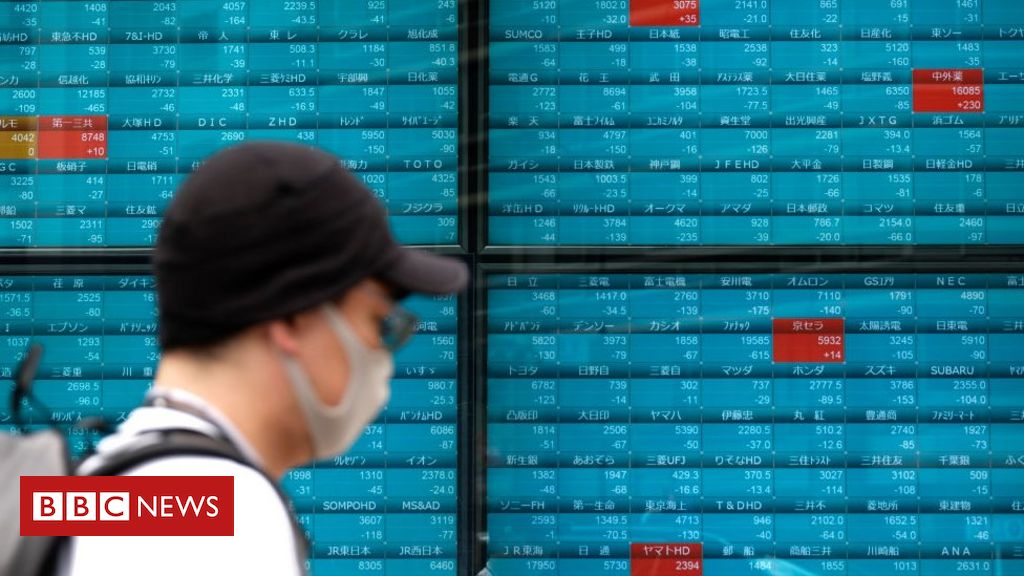A technical problem has forced a full-day halt to trading on Japan’s stock exchanges, including the popular Nikkei 225 index.
A Japan Exchange Group statement gave no details about the nature of the glitch and didn’t indicate when trading would resume again.
Trading was also suspended at exchanges in Nagoya, Fukuoka and Sapporo, which are all linked to Tokyo.
Officials say that there’s no evidence to suggest a cyber attack is to blame.
“Trading in all shares on the Tokyo Stock Exchange is suspended due to glitches linked to the delivery of market information,” Japan Exchange Group said in a statement.
Tokyo’s roughly $6tn (£4.6tn) stock market is the world’s third largest, after New York and Shanghai, according to data from the World Federation of Exchanges.
The trading halt closed one of Asia’s few major regional markets on Thursday, with exchanges in Hong Kong, Shanghai, South Korea and Taipei all closed for holidays.
The suspension soured the mood of some investors, who were expecting the market to rebound after an acrimonious US presidential debate pushed the Nikkei 225 1.5% lower on Wednesday.
The trading halt was the exchange’s first significant glitch since 2018, when a trading system problem left some securities firms unable to make orders.
The Nikkei 225 index includes the shares of many of Japan’s biggest companies including Honda, Nissan, Hitachi and Canon.
Cyber-attacks
Many stock markets have been hit with temporary glitches in the past.
In August, the New Zealand Exchange was hit by cyber-attacks that forced it to halt trading over the course of one week.
Over the past decade, the tech-heavy Nasdaq, the New York Stock Exchange, the London Stock Exchange, the Singapore stock exchange and Bombay’s Sensex have all faced technical glitches that have delayed trading.
In 2017, a temporary market error saw the share price of several major tech firms wrongly listed at the same price on the Nasdaq.

